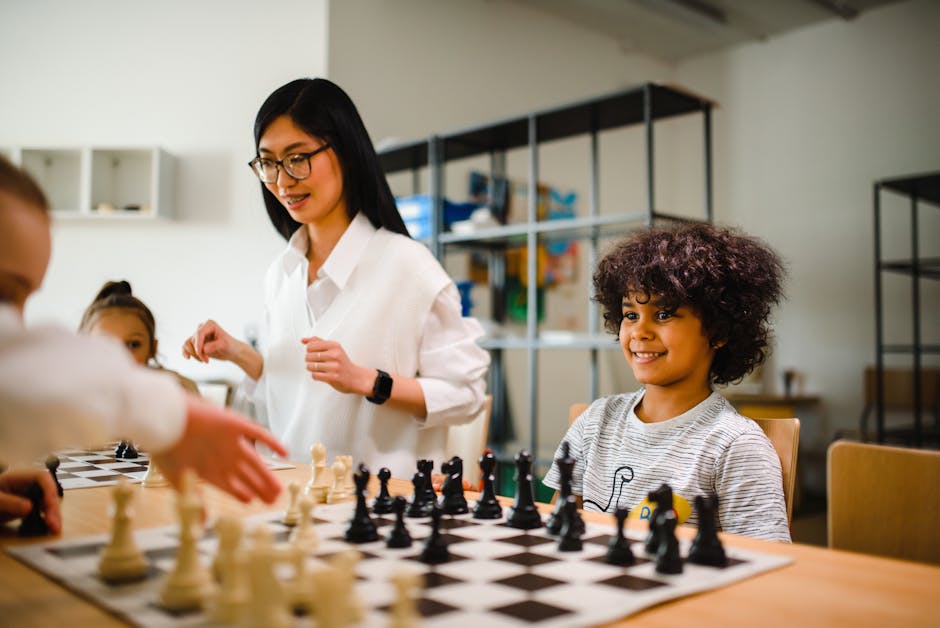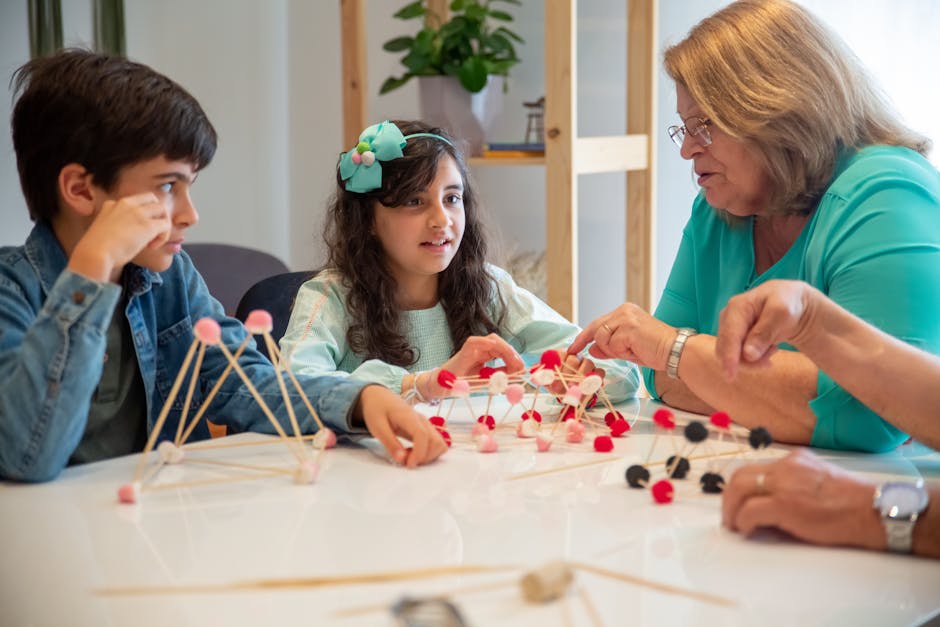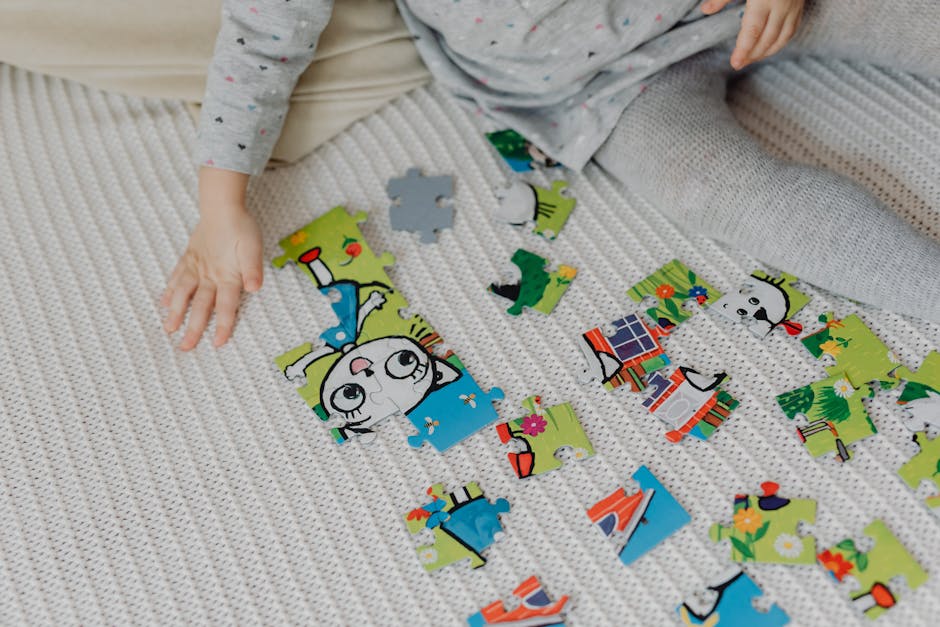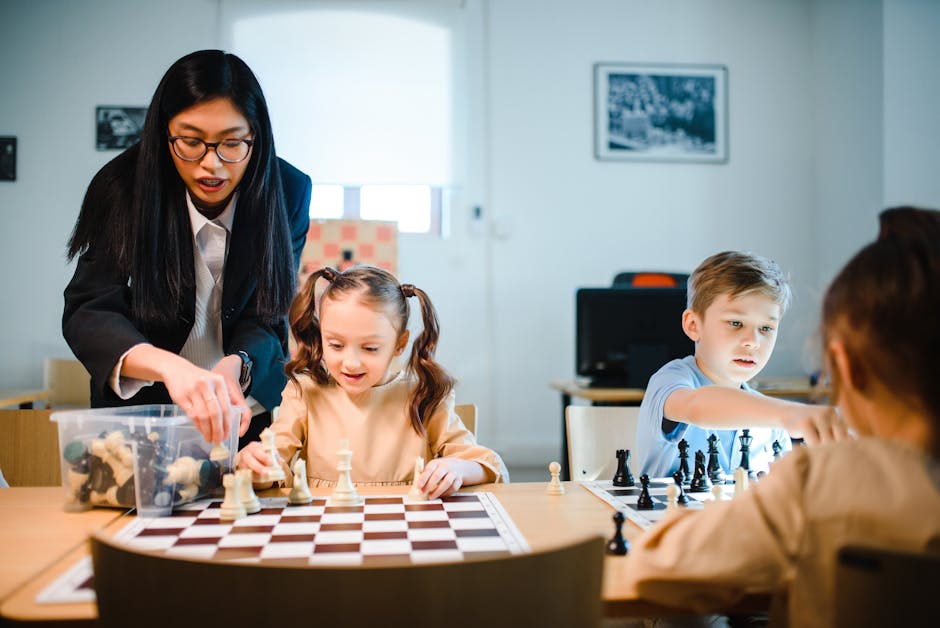Unlocking Potential: Games and Problem-Solving Skills for Kids
As parents, educators, and caregivers, we all want to provide the best possible tools and opportunities for children to learn and grow. In today’s fast-paced and ever-changing world, problem-solving skills are more important than ever. One innovative way to cultivate these skills in children is through games. But how exactly do games help kids develop problem-solving abilities? In this comprehensive guide, we will explore the fascinating intersection of games and problem-solving skills for kids, delving into the benefits, strategies, and real-world applications of this dynamic approach to learning.
The Power of Play: An Introduction to Games and Problem-Solving Skills

Play is not just a way for children to have fun; it is also a crucial tool for learning and development. When children engage in games, they are actively using their brains to strategize, plan, and solve problems. Whether they are playing a board game, a video game, or an outdoor activity, games provide a unique environment for children to practice critical thinking, decision-making, and creative problem-solving skills. In fact, research has shown that playing games can significantly improve cognitive abilities, including memory, attention, and spatial reasoning.
The Benefits of Games for Problem-Solving Skills

There are numerous benefits to using games as a tool for developing problem-solving skills in children. One of the key advantages is that games are inherently engaging and enjoyable, making learning fun and motivating for kids. When children are having fun, they are more likely to be actively involved in the learning process and to persist in the face of challenges. Games also provide a safe space for children to experiment, take risks, and learn from their mistakes without fear of failure or judgment.
Furthermore, games offer a structured and interactive way for children to practice and apply problem-solving strategies in a variety of contexts. Whether they are working together to solve a puzzle, competing against each other in a game of strategy, or navigating a virtual world, games encourage children to think critically, communicate effectively, and collaborate with others. These skills are not only essential for academic success but also for success in life, as they help children navigate complex social situations, make informed decisions, and adapt to new challenges.
Types of Games for Developing Problem-Solving Skills

There are many different types of games that can help children develop their problem-solving skills. Here are a few examples:
1. Board Games

Board games are a classic and timeless way for children to practice problem-solving skills. Whether it’s figuring out the best move in a game of chess, planning a winning strategy in Settlers of Catan, or solving a murder mystery in Clue, board games require players to think critically, anticipate consequences, and adapt to changing circumstances. Board games also provide a social and interactive experience, allowing children to learn from each other, engage in friendly competition, and develop important communication skills.
2. Video Games
Video games have become increasingly popular as a tool for developing problem-solving skills in children. From puzzle games like Tetris and Portal to strategy games like Age of Empires and Minecraft, video games offer a diverse range of challenges and opportunities for players to think critically, strategize, and problem-solve. In addition to improving cognitive abilities, video games can also help children develop hand-eye coordination, spatial awareness, and digital literacy skills.
3. Outdoor Games
Outdoor games, such as scavenger hunts, treasure hunts, and obstacle courses, provide children with a hands-on and physical way to practice problem-solving skills. These games require children to use their senses, navigate their environment, and work together to overcome obstacles. Outdoor games also encourage children to think creatively, take risks, and explore new possibilities, fostering a sense of curiosity and adventure.
Strategies for Using Games to Develop Problem-Solving Skills
While games can be a powerful tool for developing problem-solving skills in children, it is essential to use them effectively and intentionally. Here are some strategies for maximizing the benefits of games:
1. Provide a Variety of Games
Offer children a diverse selection of games to play, including board games, video games, and outdoor games. Each type of game offers unique challenges and opportunities for children to practice different problem-solving skills. By providing a variety of games, you can help children develop a wide range of cognitive abilities and social skills.
2. Encourage Collaboration
Encourage children to work together and collaborate when playing games. Collaboration not only helps children develop teamwork and communication skills but also fosters a sense of community and mutual support. Collaborative games also provide children with opportunities to learn from each other, share ideas, and work towards common goals.
3. Emphasize Critical Thinking
Encourage children to think critically and analytically when playing games. Encourage them to evaluate different options, consider the consequences of their actions, and come up with creative solutions to problems. By emphasizing critical thinking skills, you can help children develop a deeper understanding of complex issues and make informed decisions.
Real-World Applications of Games and Problem-Solving Skills
The skills that children develop through playing games have real-world applications that can benefit them in school, work, and life. Problem-solving skills are essential for success in a variety of fields, including science, technology, engineering, mathematics, and the arts. By cultivating these skills early on, children can build a strong foundation for future learning and career opportunities.
For example, in the field of computer science, problem-solving skills are crucial for designing algorithms, troubleshooting code, and developing new software applications. By learning to think logically, systematically, and creatively through playing games, children can develop the skills they need to excel in this rapidly growing and dynamic field.
In the field of healthcare, problem-solving skills are essential for diagnosing illnesses, developing treatment plans, and improving patient outcomes. By honing their problem-solving abilities through games, children can develop the critical thinking, analytical, and decision-making skills needed to succeed in this challenging and rewarding profession.
Common Misconceptions About Games and Problem-Solving Skills
Despite the many benefits of using games to develop problem-solving skills in children, there are some common misconceptions that can hinder their effectiveness. One common misconception is that games are a distraction or a waste of time, taking away valuable learning opportunities from children. In reality, games can be a valuable tool for learning and development when used thoughtfully and purposefully.
Another common misconception is that games are only for entertainment and have no educational value. While it’s true that games can be fun and engaging, they also offer a wealth of opportunities for children to practice critical thinking, creativity, and collaboration. By incorporating games into educational settings, parents and educators can create a dynamic and interactive learning environment that promotes curiosity, exploration, and discovery.
Conclusion
In conclusion, games are a powerful and effective tool for developing problem-solving skills in children. Whether they are playing board games, video games, or outdoor games, children have the opportunity to practice critical thinking, decision-making, and creative problem-solving skills in a fun and engaging way. By providing children with a variety of games and encouraging collaboration, critical thinking, and creativity, parents and educators can help children develop the skills they need to succeed in school, work, and life.
So, the next time you see a child playing a game, remember that they are not just having fun; they are also learning, growing, and unlocking their potential through play.
To wrap things up, games have the power to transform learning and development for children, offering a dynamic and interactive way to cultivate problem-solving skills that will benefit them throughout their lives. Let’s continue to harness the power of play to inspire creativity, curiosity, and innovation in the next generation of problem solvers.




